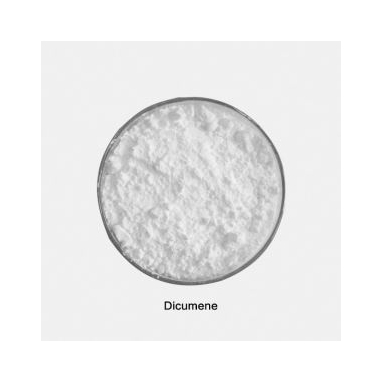The Power of Dicumene: The Ultimate Guide for Beginners
Introduction: Delving into the Wonders of Dicumene
Welcome to a journey of discovery, where science and innovation intertwine to bring you insights into the world of dicumene! From its intriguing applications to its role in enhancing safety, this blog post will unravel the wonders of dicumene in a friendly and engaging manner. So, buckle up as we embark on an exploration of this fascinating compound.
The Marvelous World of Dicumene
Dicumene, a substance that might sound like it belongs in a fantasy novel, is indeed a reality. This versatile compound belongs to the class of organic chemicals and has made its mark in various industries. But what exactly is dicumene? Let's dive in.
Imagine a compound that can be likened to a jack-of-all-trades. Dicumene, with its chemical formula C18H30O2, belongs to the family of aliphatic ketones. Its unique structure and properties make it a valuable asset in industries such as plastics, rubber, and coatings. Known for its high boiling point and exceptional heat stability, dicumene boasts applications that extend far beyond its molecular makeup.
Dicumene's Multifaceted Applications
From Plastics to Coatings: Where Dicumene Shines
Dicumene might sound like a secret ingredient from a scientist's laboratory, but its applications are far-reaching and real-world oriented. In the plastics industry, dicumene plays a crucial role as a heat stabilizer. It helps prevent the degradation of plastic materials when exposed to high temperatures during processing. This characteristic makes it an unsung hero in ensuring the durability and reliability of various plastic products that are part of our daily lives.
But dicumene doesn't stop there. Coatings and paints also benefit from its exceptional properties. Its role as an efficient peroxide initiator comes to the forefront in this context. Acting as a catalyst, dicumene facilitates the cross-linking of polymers in coatings, leading to enhanced adhesion and durability. The next time you admire the flawless finish of your car's paint job, you might just have dicumene to thank!
Dicumene's Contribution to Safety
Safety First: Dicumene as a Flame Retardant
Beyond its industrial applications, dicumene also steps up in terms of safety, making it an essential component in fire-resistant materials. Its flame-retardant properties make it a valuable addition to various products, ranging from textiles to electrical components. Dicumene's ability to inhibit the spread of flames has a direct impact on reducing fire-related risks, contributing to safer environments for all.
The Ethylhexylglycerin Supplier Connection
Building Bridges: Dicumene and Ethylhexylglycerin
Speaking of dicumene, it's hard to ignore its connection to another intriguing compound: ethylhexylglycerin. You might be wondering what ethylhexylglycerin has to do with our dicumene journey. Well, hold onto your hats because this is where things get interesting!
Ethylhexylglycerin, known for its multifunctional properties, often finds itself in the role of a preservative and skin-conditioning agent. Now, what's fascinating is that ethylhexylglycerin supplier for dicumene in certain reactions. This dynamic partnership showcases the interconnected nature of chemicals in various applications, proving that the world of chemistry is a collaborative and creative one.
Frequently Asked Questions about Dicumene
Curiosity Unleashed: Your Dicumene Queries Answered
Q1: Is dicumene harmful to the environment?
A: Dicumene's use in various industries is generally safe and regulated. However, like any chemical compound, its proper handling and disposal are essential to minimize environmental impact.
Q2: Can dicumene be used in food-related applications?
A: Dicumene is not typically used in food applications. Its primary uses revolve around plastics, coatings, and flame-retardant materials.
Q3: Are there any alternatives to dicumene in its applications?
A: While dicumene offers unique properties, there are often alternative compounds that can serve similar functions in various applications. These alternatives are often chosen based on specific requirements and regulations.
Q4: Can dicumene be used at home?
A: Dicumene is primarily an industrial compound and is not commonly used in household applications. Its properties are tailored for specific industries where its characteristics bring value.
Conclusion: Unveiling the Magic of Dicumene
And there you have it—a whirlwind tour of dicumene, the compound that defies expectations and proves that chemistry is both fascinating and practical. From its versatile applications in plastics and coatings to its role in enhancing safety as a flame retardant, dicumene showcases the power of innovation in our modern world. So, the next time you encounter a product with improved durability, remember that dicumene might just be working its magic behind the scenes.






